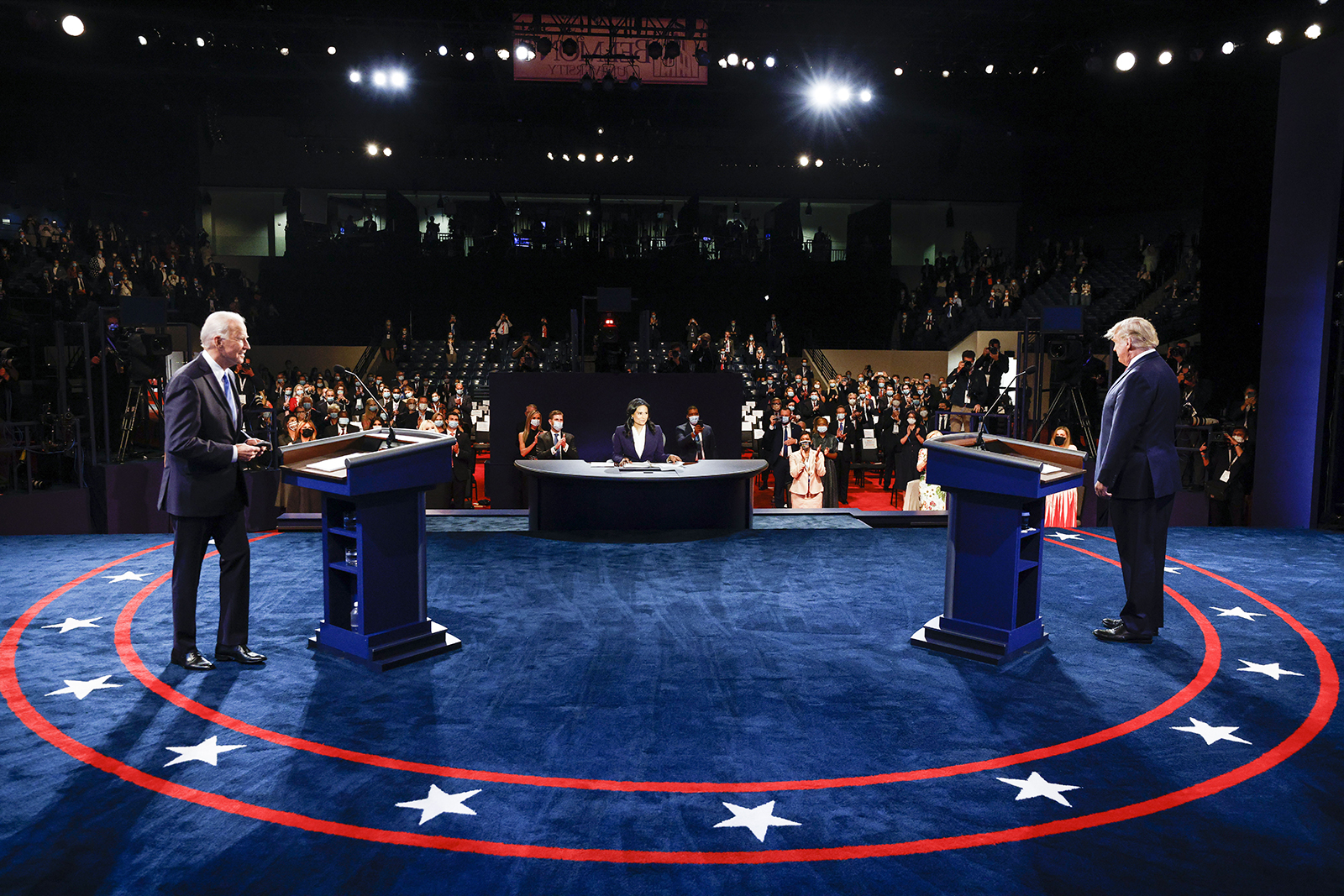Presidential Debate Schedule and Format: What Time Is Presidential Debate

The upcoming presidential debates are highly anticipated events that offer the public a chance to hear directly from the candidates and evaluate their positions on key issues. These debates are carefully structured to provide a platform for meaningful discussion and to inform voters’ decisions.
Debate Schedule and Locations, What time is presidential debate
The schedule for the upcoming presidential debates is subject to change, but here’s a preliminary overview:
- First Debate: [Date] at [Time] in [Location]
- Second Debate: [Date] at [Time] in [Location]
- Third Debate: [Date] at [Time] in [Location]
Debate Format and Topics
The format of the debates typically involves a series of segments, each focusing on a specific topic. The moderators, usually experienced journalists, guide the discussion and ensure that all candidates have an opportunity to present their views. Here’s a general overview of the format:
- Opening Statements: Each candidate is given a set amount of time to introduce themselves and their platform.
- Moderated Q&A: The moderators pose questions to the candidates, allowing them to elaborate on their positions and respond to each other’s arguments.
- Candidate Rebuttals: Candidates have the opportunity to respond to each other’s statements and challenge their arguments.
- Closing Statements: Each candidate is given a final opportunity to summarize their key points and appeal to the audience.
Comparison to Past Debates
The format of presidential debates has evolved over time, with some notable changes in recent years. For example, in the past, debates often focused more on foreign policy and national security, while today, they also address domestic issues such as healthcare, education, and the economy. Additionally, the use of social media and online platforms has increased the reach and impact of debates, making them more accessible to a wider audience.
“The debates are a vital part of the democratic process, providing voters with the opportunity to see the candidates in action and hear their perspectives on critical issues.” – [Source: [Reputable news source]]
Key Issues and Candidate Positions

The upcoming presidential debate is anticipated to cover a wide range of crucial issues that are top of mind for voters. This section delves into some of the most pressing topics and examines the positions of the candidates, highlighting their areas of agreement and disagreement.
The Economy and Inflation
The economy and inflation are likely to be central themes during the debate, as these issues directly impact the daily lives of Americans.
- Candidate A has proposed a plan that focuses on reducing government spending and regulations to stimulate economic growth. They argue that this approach will lead to lower inflation by increasing supply and reducing demand. They point to historical examples of successful economic reforms based on these principles.
- Candidate B advocates for a more interventionist approach, emphasizing investments in infrastructure, education, and clean energy. They believe these investments will create jobs and boost economic growth, ultimately leading to a more sustainable and equitable economy. They cite the success of similar programs in other countries as evidence of their effectiveness.
Healthcare
Healthcare is another critical issue that is likely to be debated.
- Candidate A supports repealing and replacing the Affordable Care Act (ACA), arguing that it has led to higher costs and reduced choice for consumers. They propose a system based on market competition and individual choice, where consumers can purchase insurance across state lines. They point to examples of states that have implemented similar policies with positive results.
- Candidate B supports strengthening and expanding the ACA, arguing that it has provided millions of Americans with affordable health insurance. They propose expanding Medicaid eligibility and lowering the cost of prescription drugs. They cite the success of the ACA in reducing the number of uninsured Americans and improving access to healthcare.
Climate Change
Climate change is an increasingly urgent issue that is expected to be addressed during the debate.
- Candidate A believes that climate change is a real threat but argues that government intervention is not the solution. They support a market-based approach, such as a carbon tax, to incentivize businesses to reduce emissions. They cite examples of successful carbon pricing schemes in other countries.
- Candidate B supports a more aggressive approach, calling for a transition to a 100% clean energy economy by a specific date. They propose investments in renewable energy sources, energy efficiency, and climate adaptation measures. They point to the potential economic benefits of transitioning to a clean energy economy and the need to address the climate crisis.
Immigration
Immigration is a complex issue that has been a source of debate for many years.
- Candidate A supports stricter border security measures and a reduction in legal immigration. They argue that immigration has put a strain on public resources and threatens national security. They point to examples of countries that have implemented stricter immigration policies with positive results.
- Candidate B supports a more humane approach to immigration, arguing that immigrants contribute to the economy and enrich American culture. They propose a pathway to citizenship for undocumented immigrants and a more welcoming approach to legal immigration. They cite examples of the economic and social benefits of immigration.
Impact of the Debates on the Election

Presidential debates are a crucial part of the American electoral process, offering voters a platform to directly compare candidates’ policies, personalities, and qualifications. While the debates are not the sole determinant of election outcomes, they can significantly influence voter perceptions, sway undecided voters, and potentially alter the course of the election.
Influence on Voter Perception and Decision-Making
The debates provide voters with a unique opportunity to observe candidates in a high-pressure environment, scrutinizing their responses to challenging questions and analyzing their communication skills. This direct exposure can shape voters’ perceptions of the candidates’ competence, trustworthiness, and leadership abilities. For example, a candidate’s strong performance in a debate might solidify a voter’s support, while a weak performance could lead to second thoughts or even a shift in preference.
Impact on Voter Turnout and Public Opinion
Presidential debates can generate significant public interest and media attention, potentially boosting voter turnout. The debates provide a focal point for political discourse, stimulating discussions among voters and encouraging them to engage in the electoral process. Furthermore, the debates can influence public opinion by shaping the narrative surrounding the candidates and their positions on key issues. A candidate who delivers a compelling performance in a debate might gain momentum in public opinion polls, while a candidate who falters could experience a decline in support.
Historical Impact of Presidential Debates on Election Results
Throughout history, presidential debates have played a significant role in shaping election outcomes. For instance, the 1960 debate between John F. Kennedy and Richard Nixon is widely considered a turning point in the election. Kennedy’s television presence and charisma contrasted with Nixon’s more somber demeanor, potentially influencing voters who were watching the debate on television. Similarly, the 2016 debate between Hillary Clinton and Donald Trump was widely discussed, with some analysts suggesting that Trump’s performance, despite being criticized by some, may have resonated with certain segments of the electorate.
What time is presidential debate – Mark your calendars! The presidential debate is happening tonight, and while we’re all glued to the screen, it’s important to remember the complexities of the world stage. The debate might focus on domestic issues, but it’s impossible to ignore the global landscape, including the ongoing tension between Iranian and Israeli relations.
This conflict, with its roots in history and ideology, continues to shape international politics, even as we watch the candidates spar over domestic policies. So, grab your popcorn and settle in, but don’t forget to keep the bigger picture in mind.
While the presidential debate is a major event for the US, it’s important to remember that global events are happening simultaneously. The conflict between Israel and Hamas, for example, is a complex issue with a long history, as explored in this article: israel hamas leader.
These international events often influence the political landscape, so it’s crucial to stay informed about both domestic and foreign affairs while watching the debate.
